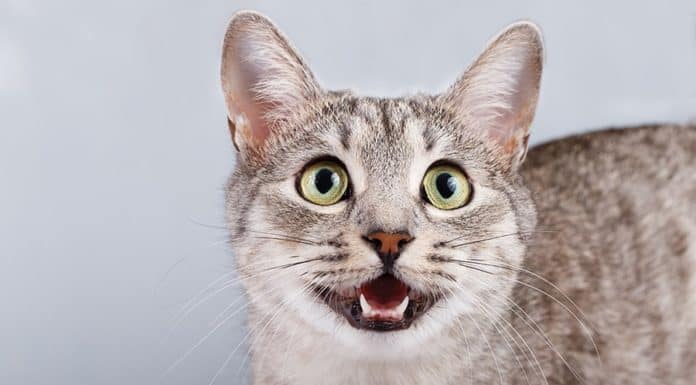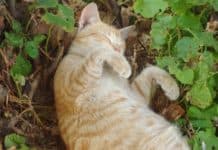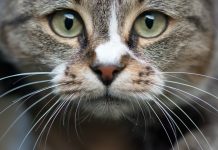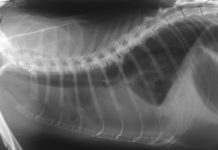Noisy breathing in cats –a feline condition, which occurs during cat’s inhalation. This is a high-pitched, snore kind of sound, which commonly arises from the fluid vibration, or the tissue vibration, which is flabby or relaxed. This commonly arises from the airway blockage in the pharynx. In this article, we will discuss some more amazing and interesting facts about noisy breathing in cats including its causes, symptoms, and treatments. Read on to learn more about these!
What is Noisy Breathing in Cats?

Even though noisy breathing in cats itself isn’t deadly, the causal condition may be. If the airway obstruction is the one to blame, total airway blockage may happen so quickly and even with no notification, resulting to a complete respiratory failure. The narrowing, blockage, and some other issues, which result in the noisy breathing may occur nearly somewhere in the cat’s respiratory system. Further. this includes the larynx, smaller airways in the lungs, bronchi, throat, mouth, or nose. Further, cats which are experiencing noisy breathing must be seen by a vet, in order to diagnose or rule out possibly serious medical illnesses.
The terminology noisy breathing is used in describing any condition where in the breathing is abnormally loud. Moreover, this may include the breathing that can be heard clearly even without using a vet equipment. The noisy breathing in cat may sound somewhat like a wheezing sound, squeaking, or snoring.
Types
There are two major kinds of noisy breathing. The kind is being determined as to where the breathing disruption takes place, and may frequently be identified by the sound the cat is making while it’s breathing. The kinds of noisy breathing include the following:
Stertor
This is characterized by noisy breathing with low-pitched sound, which happens when inhaling and is commonly due to an issue in the throat or nose
Stridor
This is characterized by noisy breathing that comes with a high-pitched sound, which often happens when inhaling, and is typically due to an issue or blockage in the windpipe or larynx.
Causes
A humongous number of illnesses may instigate noisy breathing in cats. These may range from congenital irregularities to foreign objects, infections, as well as some other disorders and diseases. Moreover, stertor or stridor breathing might help in identifying the kinds of issues, which cause the issue as they may affect different parts of the throat, airways, as well as the nose. However, different underlying causes may result in both kinds of noisy breathing. The common causes of noisy breathing in cats may include the following:
- Strong emotional responses like fear or anxiety
- Fever
- Shock
- Throat inflammation due to toxins or vomiting
- Side effects of sedation or anesthesia
- Acromegaly
- Trauma damage or injury
- Laryngeal paralysis
- Laryngitis
- Larynx collapse
- Nose, respiratory, or throat passages lesions
- Narrowed throat, nose, and nostrils
- Pneumonia
- Toxicity or poisoning
- Brachycephalic airway syndrome
- Dehydration
- Cancer
- Thyroid issues
- Heart disease
- Chronic obstructive pulmonary disease
- Congenital heart failure
- Blood disorders
- Lung disease
- Fluid accumulation in the abdominal cavities or chest
- Asthma
- Upper respiratory infections
- Airway obstruction
Symptoms
The main symptom of noisy breathing in cats is loud breathing. Also, the noise may range from low-pitched snore kind of sound through a higher squeaking or whistling sound. It might come with breathing changes or difficulty in breathing. Further, the noisy breathing might come with different other symptoms, varying on the causal condition of the malady. Related symptoms may be austere and might even be deadly.
The symptoms include:
- Fever
- Restlessness
- Behavioral changes
- Pale mucus membranes
- Pain and linked vocalizations
- Nasal discharge
- A cough that produces mucus
- Weakness
- Exercise intolerance
- Inability to meow or vocalize
- Hoarseness
- Changes in the voice
- Snoring sounds even when awake
- Squeaking sounds while breathing
- Breathing with elbow sticking out or neck extended
- Sneezing or coughing
- Flared nostrils
- Movement of chest and belly while breathing
- Rapid breathing or panting
- Open-mouth breathing
- Wheezing
- Trouble breathing
- Loud breathing sounds
Treatment for Noisy Breathing in Cats
The treatment for noisy breathing in cats may focus mainly on treating the causal condition. For instance, if a tumor is the cause of the condition, surgical removal or some other cancer therapies might be used. Below, we listed some of the possible treatments for the feline condition:
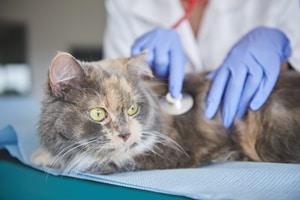
- Surgical Intervention. If there is foreign object, injury, or tumor obstructing the airway and causes the noisy breathing in cats, surgery might be essential.
- Antibiotics. Respiratory and some other bodily infections are frequently contributing factors in the noisy breathing. This helps in getting rid of the infection, as well as assist the immunity in overcoming illnesses.
- Steroids. This is used commonly for breathing difficulties like asthma.
- Antihistamines. This is used in treating allergic reactions and allergies. This assists in breathing, even when allergies aren’t the lone cause. Proper dosage is important in reducing the side effect’s risks.
- Fluid Therapy. IV fluids might be essential in treating pets with noisy breathing, specifically if muscle dehydration are factors. The administered fluids may assist in thinning out the mucus and make the coughing even more productive.
- Oxygen Therapy. Giving oxygen may assist in the respiratory function and assist in the maintenance of healthy blood oxygen levels.

